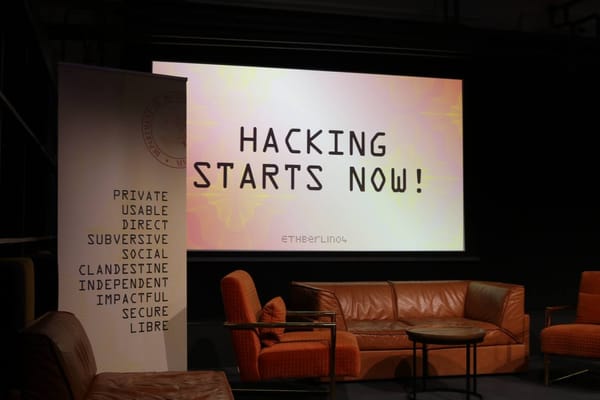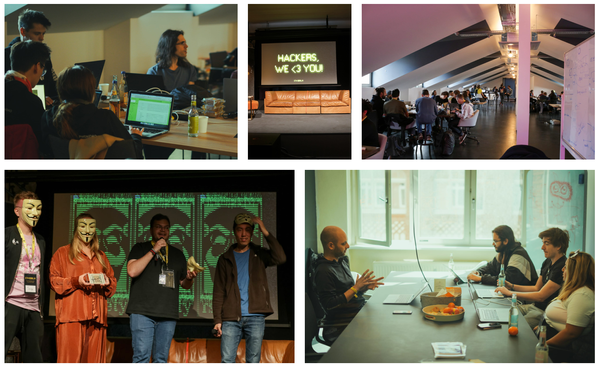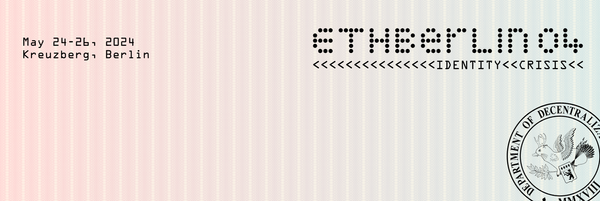They came, they saw, they bountied
Words by Helena Flack
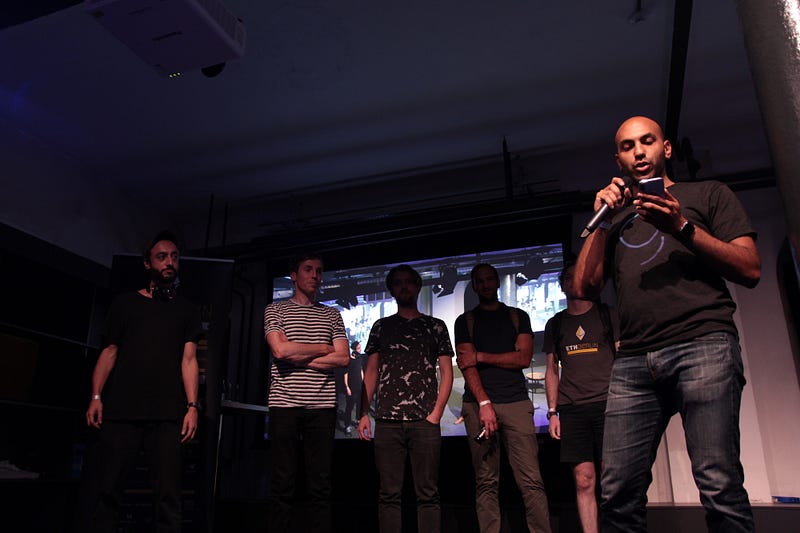
Words by Helena Flack
A month on and the withdrawal struggle is STILL so real. We went to San Francisco for hackathon vibes — it was awesome but we still miss ours. We are sitting in Full Node reminiscing about that weekend in September when the whole community took over Factory Gorlitzer and hacked the life out of Berlin. Even though ETHBerlin is over, and just when you thought you heard the end of us, guess what?! WE STILL HERE. You are stuck with us for a while. Sorrynotsorry.
As you should all know from all our ramblings and posts, ETHBerlin had a mission from the start — we wanted the hackers to have wide creative freedom to choose what they wanted to build, and exactly how they wanted it. Our priority was to guarantee the open track bounty prizes would be substantial enough to grant creative freedom. So we made a pledge that all of our sponsors would allocate part of the sponsorship package money to this. In addition, some of the teams ramped up the BUIDLING challenge by adding great and interesting bounties via Gitcoin.
We chose to do this to allow the participants to work on their projects and experiment without any pressure of having more chances to earn a prize by building on a specific framework, for example. And as all sponsors contributed substantially to the Open Track Bounty, they can all rest assured that they contributed to funding the 10 winners of the Open Track Bounty on top of the sponsor prizes.
The Open Track bounty totaled 75.000€, divided between 10 winners, so a total of 7.500€ per winning team. At ETHBerlin, hackers were backed by the best mentors we could find (and wish for!) from sponsors to more general mentors, everyone collaborated. The Ethereum Foundation, Parity, Raiden etc brought armies of mentors ready to help on more general subjects, while the mentors coming from our sponsors DAOstack, MakerDAO, Aragon, Colony, Status, The Graph and Livepeer, answered all questions on how to integrate their toolkits and frameworks.
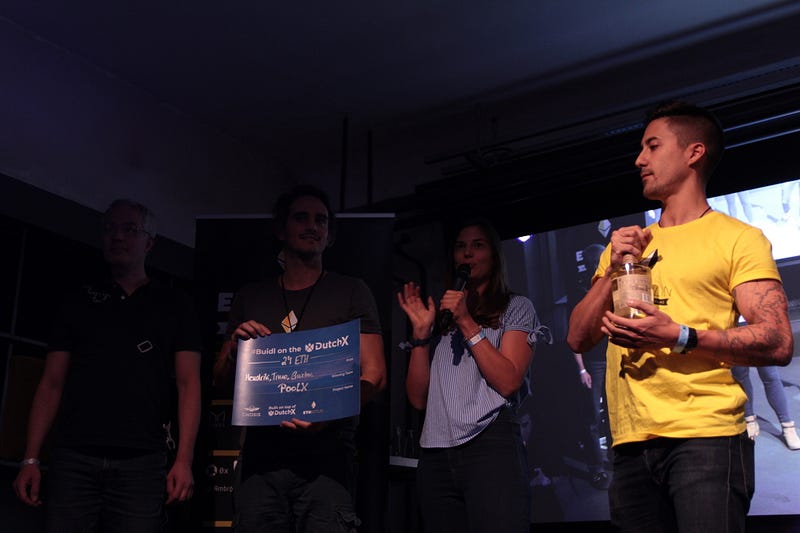
In this post we asked some of our kick-ass sponsors to tell us a bit more about the ones they chose and why they crowned them as their winning teams.
So first up we have the team over at DAOStack. They told us that they were super proud to sponsor this year’s ETHBerlin. DAOstack offered bounties for integrating projects with the DAO stack and selected winners based on their code architecture, use-case applicability, and project completeness.
Their first winner was the Hackfury team. This project built a new kind of DAO on top of DAOstack, one they call a Decentralized Audit Organization, which is designed to store meta-information for submitted DAO audit reports. Their aim is to provide a truth source for auditor/customer conflict resolution, reputation management for audit providers, and auditor payment solutions. Team member Pavlo Radchuk explained Hackfury’s decision to go with DAOstack:
“My partner Ivan Kotelnikov and I reviewed several DAO frameworks, and we decided to build Hackfury DAO on DAOStack because DAOstack perfectly matched our specifications, had good documentation, helped us make great progress within a short time, and offered a sponsor’s bounty. We succeeded in creating the Hackfury DApp with all the core functions needed for smart contract audit submission and verification, reputation management, etc. We had a great time, and the team is totally satisfied with our results. Thank you DAOStack for your help and support.”
The second winning team for them was DebtorDAO. They integrated their project with DAOstack as well as the crypto lending platform Dharma. DebtorDAO is a tool for making collective spending and investing decisions using crowdsourced loans, bringing more transparency and accountability to raised funds. Team member Bo Henderson shed more light on their project and their experience with DAOstack:
“Using Dharma to fundraise via a crowdsourced loan is great, but being able to come to a consensus on how this borrowed money is spent in a completely transparent way with DAOstack leverages this capability into a tool that could dramatically cut corruption and unwise spending. We wrote our code with the goal of building something that will be as useful as possible to as many people as possible. DAOstack’s focus on modular and reusable code means that the Dharma integration we worked on could be used by a bunch of different projects, in combinations and use cases that haven’t even occurred to us yet. It also meant we were able to focus on building our bridge between DAOstack and Dharma without needing to build a boilerplate or reinvent any DAO primitives. We’re inspired by DAOstack’s vision and are excited to continue building on their platform!”
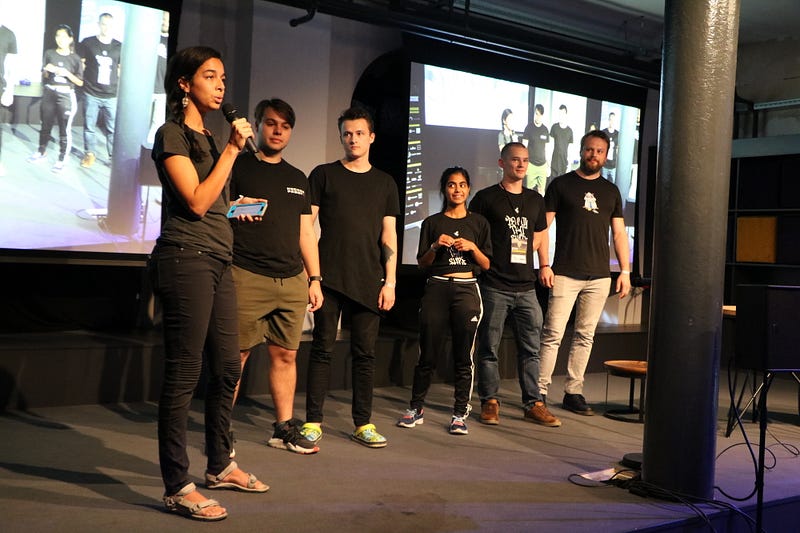
Next up to sponsor a prize was Gnosis. Gnosis is an integral part of the Berlin ethereum community and supported the hackathon in so many ways. Their protocol, DutchX is an open, decentralised trading protocol for ERC20 tokens, using the Dutch auction mechanism to determine a fair value for tokens.
Though invented, designed, and built by Gnosis, “we envision the DutchX to be a truly decentrally run and maintained piece of currently missing infrastructure. It is permissionless and anyone may build on top.”
Their reasoning for picking their winning project: “As part of the ETHBerlin hackathon, we encouraged teams to #Buidl on the DutchX, with documentation available here. We are really excited about the winning team: *PoolX* . They wrote a smart contract to pool initial liquidity for the first auction to list a new token to the DutchX Protocol. They also integrated this into a telegram bot for users to take part in the Pool. Awesome to see such a fantastic integration and we are happy to help them take the idea further and to team up for some meetups in the future.”
The Graph were happy to have the opportunity to have multiple teams compete to win a prize for building on their platform. The Meetup dApp team won $1,500 dollars for their dApp that lets users create interest groups and find local events. They used The Graph to index that data and surface it to their UI.
In first place for $3,000 we had the mind-bending Artonomous. Artonomous is a self-sustaining, self-improving, autonomous artist. They built a subgraph for art generators and for SOUL tokens that are used to back generators and benefit holders through the generated art pieces that are sold. The subgraph they built involved multiple smart contract data sources and the team became a top finalist in the overall competition.
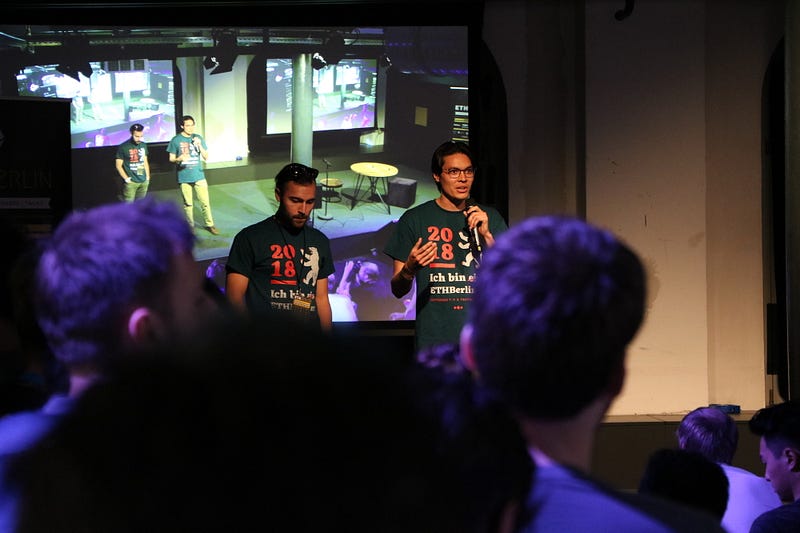
Colony’s bounties at ETHBerlin were open-ended prizes for any useful integrations or use-cases. Because the CLNY token is live but _locked_ until the Colony token sale, the prizes were awarded on good ol’ fashioned ETHcards!
The team explained their choices, “The first prize of 15,000 CLNY ($2,500 in the public sale) went to Open Times, a novel use case for Colony as an autonomous and peer-reviewed journal. In addition to creating a working prototype for a use-case with a social impact aspect, the Open Times team aided Colony in fixing a bug in colonyJS! 13/10 would hack with again.”
“The second prize of 10,000 CLNY ($1,500 in the public sale) went toward a mobile app UI for Colony and DutchX. The colony dApp will be desktop-only, so we were thoroughly impressed with a mobile-first approach to a colony set up. Hopefully, this project will evolve and continue so that the mobile-only users across the world can access the Colony Network and make use of Decentralized Autonomous Organizations!”
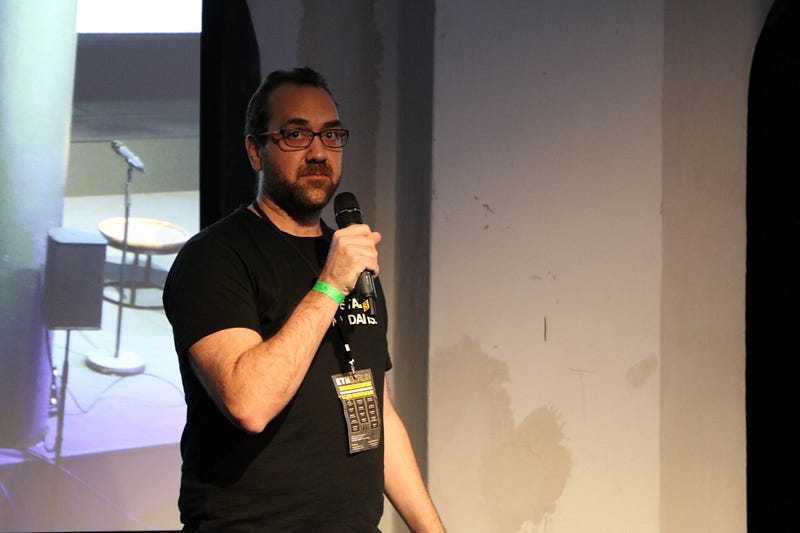
MakerDAO also gave a separate prize to their favourite project. Here’s what they told us, “The 44Finney team were the winners of our 3000 Dai Top Prize at EthBerlin for their MakerDAO SuperDashboard. This project reads data from the Dai Credit System (on Mainnet) and presents the user with an assortment of charts including:
- Collateralization rates of CDP over time taking into account the following events:
- Adding collateral to CDP
- Wipe
- Bite
- ETH price at which Bite event occurs, based on the following events:
- Adding collateral to CDP
- Wipe
- Bite
- Collateral amount and Debt amount over time
- Scattered collateralization
We loved the project because it showed a great understanding of the Dai Credit System, including the ability to query individual CDP data to extract meaningful information for its users.
The team at 44Finney have assured us that they’ll use the prize to continue working on the prototype and integrating it with their existing product: https://loanscan.io/ “
Yann Levreau from the Remix team, Ethereum Foundation, told us they, “have since this week had two other teams working on three different plugins (so in total 5 plugins). So finally the hackathon gave us enough visibility to attract devs around Remix plugin development, that’s a good thing.
We will continue working with them and updating these issues in the ETHBerlin repository and we still plan to select a few teams to connect to EF grant for sponsorship (as it is described there) depending on their work on Remix plugin.”
So there it is folks. They came, they saw, they bountied. We couldn’t have been happier with the projects that came out of that weekend. In order to align incentives to ensure agnosticism, we took a risk. We did not know how sponsors would react to this new model. However, there was no risk. We are proud to say that all ETHBerlin sponsors understood we needed to allow more freedom in building to hackers, and they were all happy to contribute in the way we thought better.
Results speak better than words.
And it’s not over until Carlos Matos sings, so stay tuned because after the overall amazingness of the first edition, ETHBerlinZwei is inevitable and we are SO excited already.


